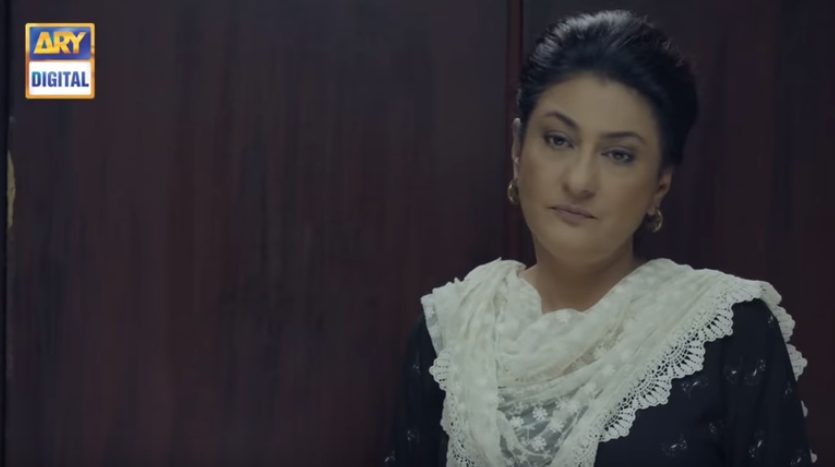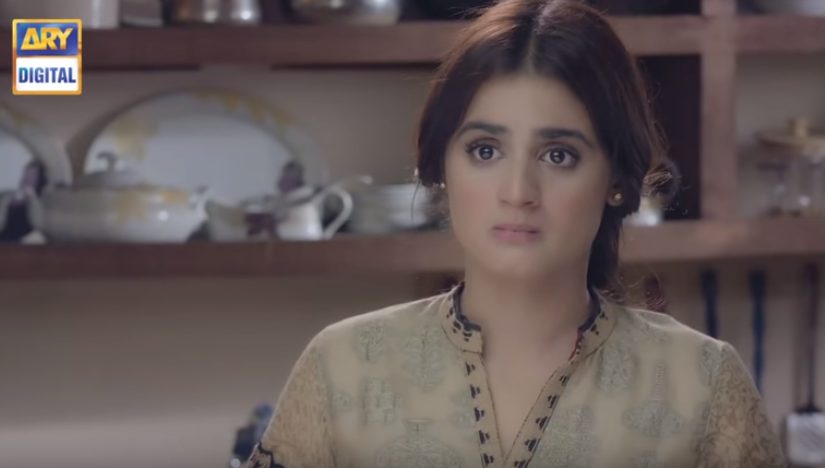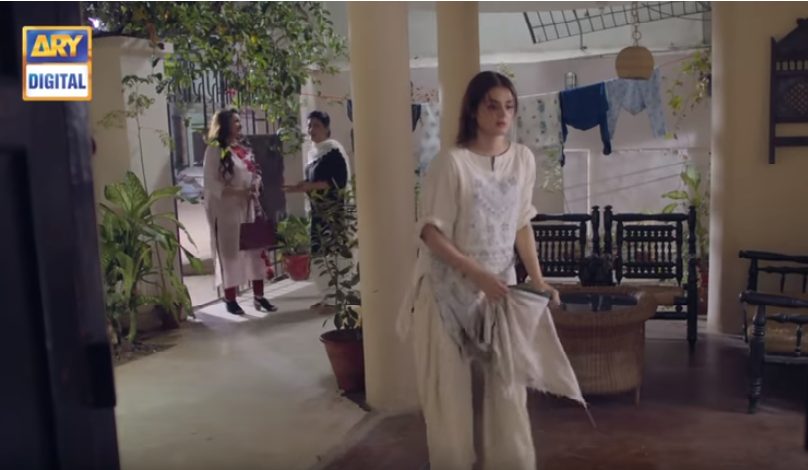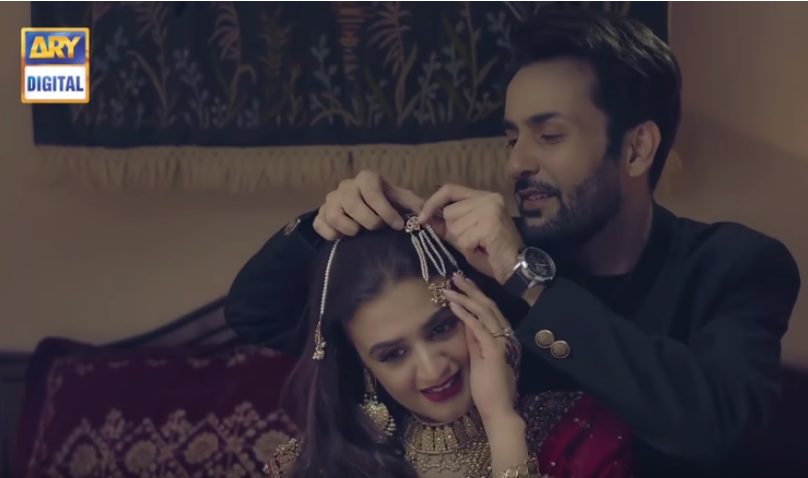Ghalti will make you cringe and even feel a little angry. Typical, typical, typical Pakistani drama re-enforcing the stereotypes we are trying to change in our society push through in the first five episodes of ARY Digital’s Ghalti.
The drama is full of the more than typical saas-bahu drama, the word talaaq thrown in for good affect and the jealous nunday, Ghalti left nothing behind. All that’s left now is someone planning kaala jadu and all the ills of our society will be complete. What’s more shocking is that someone as brilliant an actress as Saba Hamid is acting and directing this incredibly regressive drama. Even if the moral of the story is for the good, the fact that the drama indulges in such barbaric stereotypes is disturbing in itself.

The story revolves around Zaira (Hira Mani), a happy, single daughter belonging to a wealthy family and nikkahed to her cousin Saad (Affan Waheed). Saad’s family, including his widowed mother Zaitoon (Saba Hamid) and sisters live in a house provided by Zaira’s father. Zaira’s father faces some financial issues and asks Zaitoon to vacate the house that belongs to him so he can pay off his debts. Zaitoon is enraged that she now has to return to her small little house (which is not in Defence) and plots revenge. Revenge plotting includes trying to break off Zaira’s marriage to her son, accepting the marriage and hoping that once Zaira is ruksatied her father will give them another house and when that doesn’t happen, plotting and scheming to make Zaira’s life miserable.

Only someone who has as blank an expression as Hira Mani could play the helpless, sad, little Zaira. So helpless that the viewer doesn’t get angry at Zaitoon for treating her daughter-in-law like trash, but more at this Zaira; an educated girl who should be able to stand up for herself but oh ho, her love for her incredibly mediocre husband Saad drives her to cook, clean, be treated like trash by her in laws because she must live with what’s been handed to her and suffer because she loves her husband.

Woh bhi choro, Saad’s big ghalti is that he divorces Zaira once in a fit of anger and it’s like the worst thing that could happen, right? Wrong. Zaira is perfectly fine with Saad once he gets her imported flowers and they get on with their happy lives.

People need to be educated that this concept of uttering talaaq once and the process that has to be followed by law is completely different than what is shown in our dramas. Talaaq at three different times, with proper methods to reconcile, are done to protect the woman and the couple and the way they are thrown around in our dramas, especially this one, is irresponsible and criminal.

What’s worse is the way the word talaaq is treated like a joke and reason to gossip. The defence of this drama would be that aisa tou hota hai and women can relate to their lives being as terrible as Zaira’s but really? Is that what we want people to watch and feel? That this happens to everyone, so it’s perfectly fine if it’s happening to them? Why do we constantly push this terrible narrative of saas bahu dramas to gain ratings?
Because it gets ratings. The five episodes on YouTube have more than a million views each so we can keep expecting that such dramas will be created and actors like Hira Mani and Affan Waheed and director Saba Hamid will keep doing such roles.







